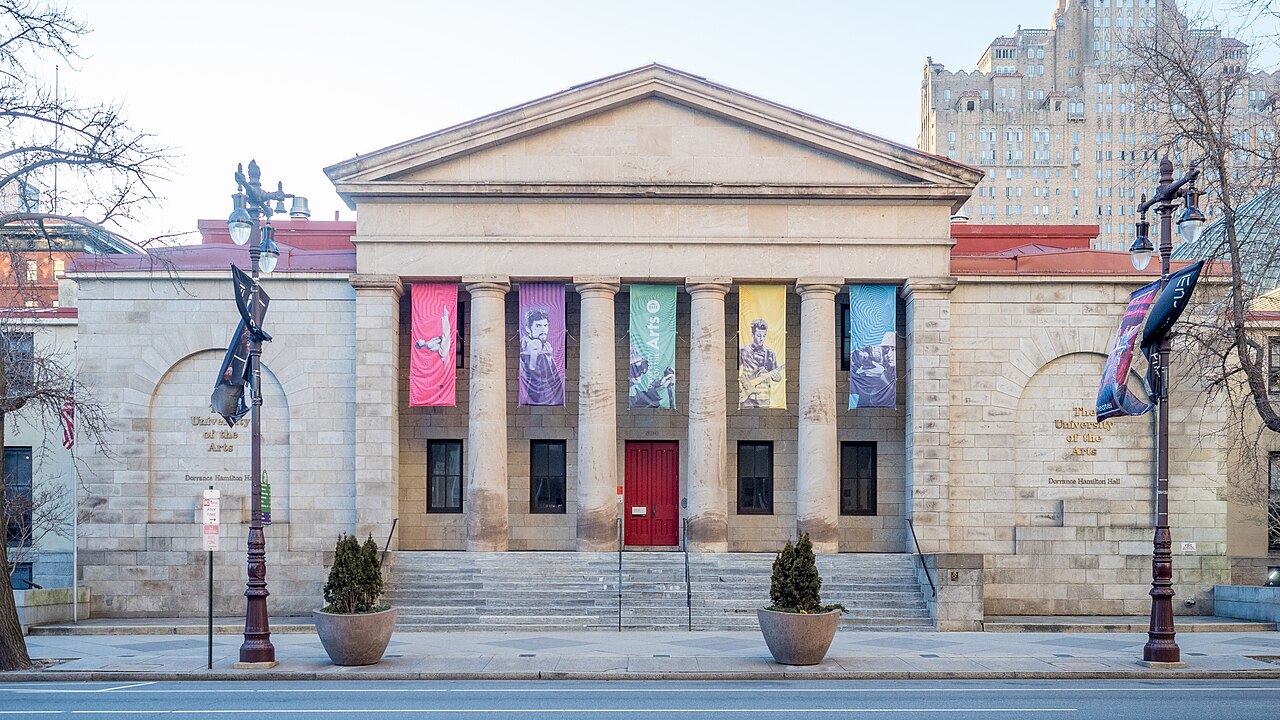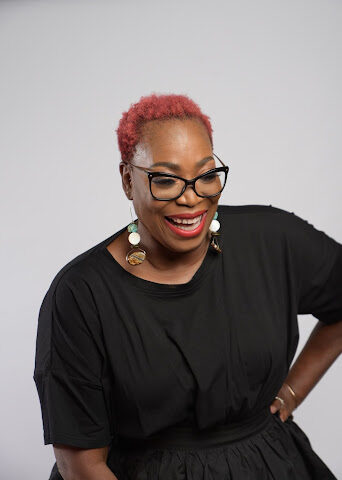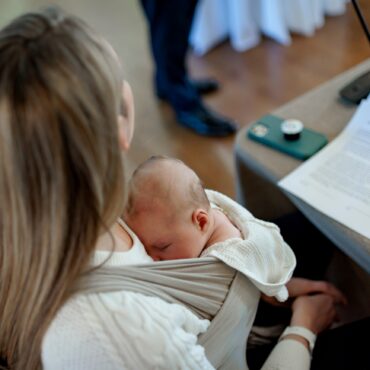-
play_arrow
WURD Radio
University of the Arts closing with one-week notice? This just isn’t done

Elaine Maimon / The Philadelphia Citizen
In my 50 years in higher education, I have witnessed the sad demise of a few universities. But I have never seen anything like the shocking announcement on Friday, June 1, of University of the Arts’ closing its doors with one week’s notice. Maybe I’ve missed something, but this just doesn’t happen with accredited, not-for-profit universities. (And UArts has long been accredited and not-for-profit.)
According to the Inquirer, the only explanation University of the Arts trustees are giving is an unspecified “urgent crisis.” A crisis of this severity does not appear overnight. It’s clear that UArts, like many higher education institutions, has been dealing with serious post-pandemic declines in enrollment and other financial challenges. Colleges and universities in Philadelphia — and across the country — are analyzing the situation and making decisions about what to do.
When universities are thinking of closing, they do not recruit a freshman class for the following year. That’s a fundamental principle.
In our area, Cabrini University made the tough choice to close after exploring mergers and other options. Their closing illustrated good practice in planning for all affected. Although this semester was the final one for Cabrini, the institution is being absorbed by nearby Villanova University, which has vowed to maintain Cabrini’s mission. Earlier this year, Pennsylvania Academy of Fine Arts (PAFA) also announced it was shutting down its degree-granting programs after the 2024-25 school year — another tragedy, but one that students and faculty at least have some time to plan for. (Update: In the days following UArts’ announcement, Temple University’s board said it was in talks to absorb the school.)
The abruptness at UArts undercuts an essential core value of higher education: the protection of students. Even when a university decides to eliminate major programs, they are obligated to support a teach-out allowing students in the major to complete the degrees they have started. With all programs closing suddenly, University of the Arts’ 1,149 students are left high and dry. No respectable institution does this. The only cases of such malpractice are at fly-by-night for-profit institutions — those that the U.S. Department of Education have deemed irresponsible and have therefore forgiven student debt.
Noah David Roberts, a BFA student scheduled to begin their senior year in the fall, expressed their anger in an interview with WHYY. ”The negligence is shameful,” they said. “And the lack of communication is shameful. And I think that University of the Arts admin has let down and disappointed every single person who has interacted with the school by hiding this information from all of us …. ”
The Inquirer reports that University of the Arts had recruited a freshman class for 2024-25. Upper Dublin senior Brynleigh Duffy had selected the UArts from among the 28 schools she had applied to for musical theater. “The programs are so selective, most of them have a cap of 20, and if those spots are filled, there’s not a lot of wiggle room for me,” Duffy told a reporter.
When universities are thinking of closing, they do not recruit a freshman class for the following year. That’s a fundamental principle.
Why all the secrecy?
What was University of the Arts telling its accrediting agency, the Middle States Commission on Higher Education? As late as May 28, 2024, Middle States had affirmed continuing accreditation of the University of the Arts until the next evaluation visit in 2026-27.
But then on May 30, presumably after Middle States was informed on May 29 of the pending closure announcement, they wrote the following:
In accordance with Commission policy and federal regulations, the teach-out plan must provide for the equitable treatment of students to complete their education or transfer to another institution.
On May 31, the Commission acknowledged the anomaly of University of the Arts’ behavior, with no recourse but to withdraw accreditation at that point:
To note that the institution failed to inform the Commission of closure in a timely manner or to properly plan for closure with prior approval through substantive change.
It’s important to recognize that UArts is not closing because it lost accreditation. It’s the other way around. They lost accreditation because they are closing without teach-out plans or anything adequate to protect students.
What in the world is going on? University of the Arts ignored clear federal and regional accreditation standards for closing. The trustees approved a faculty contract in February, 2024, without revealing to instructors that they would soon be out of a job with only one week’s notice. They admitted a new class of students for fall 2024.
From my 24-year experience as a university president, I can only conclude that the UArts Board of Trustees was either asleep at the switch or lacked the collective imagination to solve the problem. Why all the secrecy? Why not reach out to other universities for possible mergers, or to the City for protection? If we don’t learn from this, we may find this is just the beginning of such closures.
What can be done?
Kudos to Mayor Cherelle Parker, who, as reported by the Inquirer, has stated “I will continue to convene conversations between university leaders and city, state, federal offices and other stakeholders in the days ahead to determine what can be done to protect every student faculty and staff member at University of the Arts, a crown jewel in our city’s academic and cultural communities.” State Rep Ben Waxman (D., Phila) has demanded an independent investigation. I join him in that call.
With all programs closing suddenly, University of the Arts’ 1,149 students are left high and dry. No respectable institution does this.
We are dealing with a mystery — one that affects Philadelphia’s acclaimed Avenue of the Arts, the region’s entire arts community, and colleges and universities across the nation. Higher education was having a bad year before this happened. We don’t need this further tarnish.
University presidents — and I can speak as one of them — wake up every morning concerned about the future of their institutions. In 2015-17, when a renegade governor withheld all public funding from the regional public university I headed as well as from all Illinois public higher education, I spent untold hours reassuring families that our university would not close. I could say that because of our analysis of existing reserves and other possible sources. And yet many families were skeptical. (You can read about this experience in my book, Leading Academic Change: Vision, Strategy, Transformation.)
University of the Arts’ sudden and unexplained closure increases skepticism for all higher education.
Let’s find out what happened, do what can be done to protect students and employees, and make sure that the historic building at 320 S. Broad Street, whatever its future, remains a symbol of Philly’s vibrant artistic community.
Written by: Associated Contributor
Similar posts
Featured post
Latest posts

This week on WURD: DA Larry Krasner loses legal battle over SEPTA, Camden school board president alleged sexual assault, improving Black birth outcomes

Legal cannabis likely won’t be in this year’s budget, but supporters say there’s a silver lining

University of the Arts closing with one-week notice? This just isn’t done

This week on WURD: Philly’s $6 billion annual budget, access to abortion pills, unveiling the artistic achievements of Black Americans since the Emancipation Proclamation

Paid family leave draws bipartisan support as good for the economy, but some oppose cost, lost control
Current show

The Source with Andrea Lawful-Sanders
The Source, hosted by a powerhouse lineup of leaders from the Philadelphia region, offers fresh perspectives on news, politics, finance, economic development, personal growth and healing.
closeUpcoming shows

Wake Up With WURD
7:00 am - 10:00 am

Philadelphia City Council Live
10:00 am - 1:00 pm

Keepin’ It Real with Rev. Al Sharpton
1:00 pm - 4:00 pm

Evening WURDs
4:00 pm - 7:00 pm

Love & Life
7:00 pm - 9:00 pm
WURD Radio LLC © 2012-2021. All rights reserved.






Post comments (0)